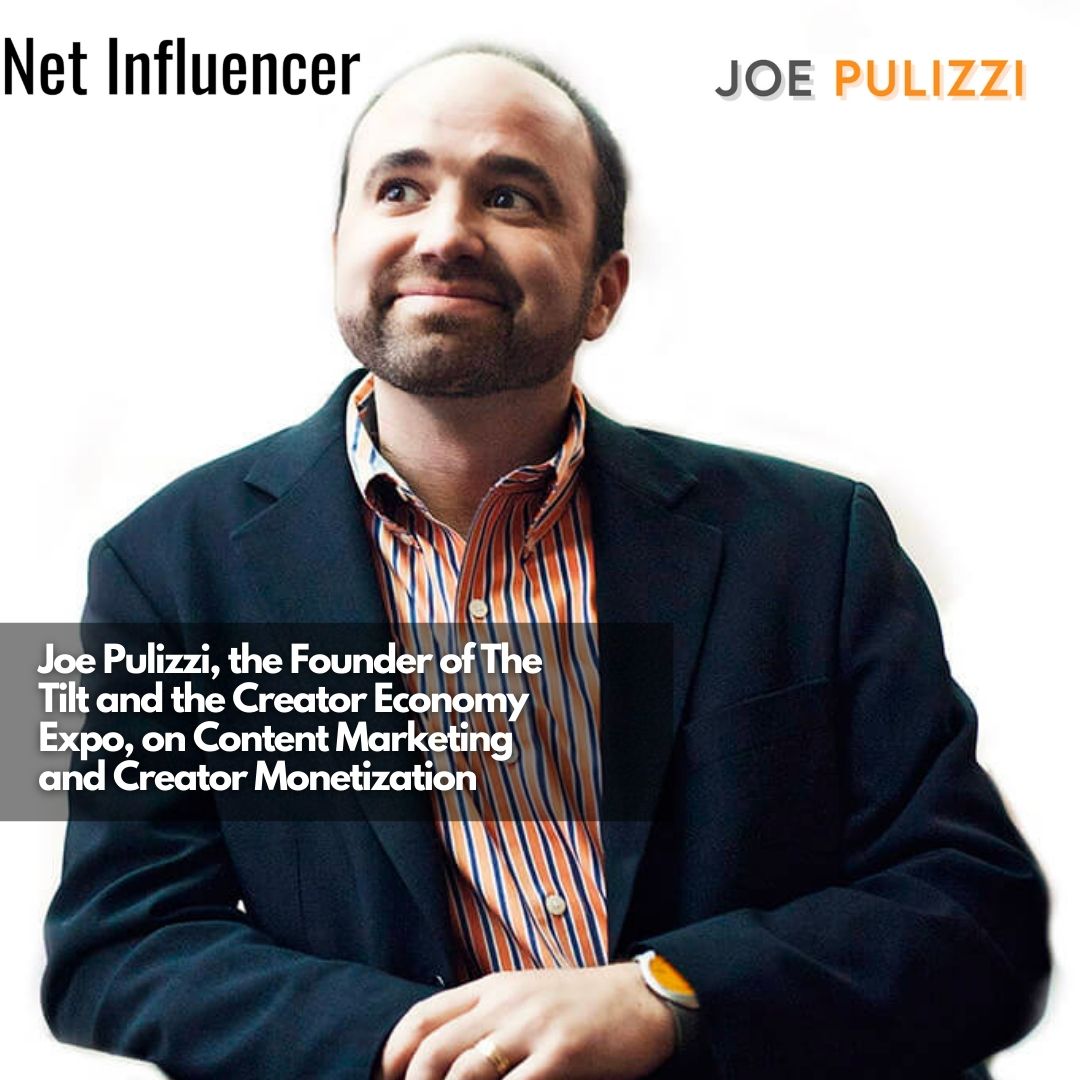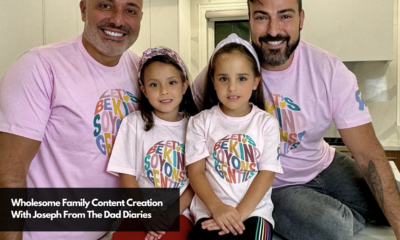Strategy
Joe Pulizzi, the Founder of The Tilt and the Creator Economy Expo, on Content Marketing and Creator Monetization
Joe Pulizzi popularized the term “content marketing,” launched the Content Marketing Institute, and is the founder of The Tilt and Creator Economy Expo. Today, he shares with us his top tips for content creators and companies looking to leverage content marketing.
Who is Joe Pulizzi?
Joe Pulizzi is best known for his work in and use of the term “content marketing,” which he first used in 2001. He also launched the popular Content Marketing Institute and the Content Marketing World Event. In addition, Joe has received the prestigious “Lifetime Achievement Award” by the Content Council and recently founded The Tilt and Creator Economy Expo.
Joe is the author of seven books, one award-winning mystery novel, and six bestselling books on different content marketing topics. Joe and his wife, Pam, also founded the Orange Effect Foundation in 2014 to help families in need obtain technology equipment or speech therapy resources for their children.
The Content Marketing Institute
Joe began his career in traditional business to business publishing. He explains that he managed projects and sold magazines for large business organizations, such as Autodesk and Julie Packard. Around 2005 or 2006, the importance of search engines, like Google, became more apparent.
Joe shares, “These companies had to start creating their own content if they wanted to get attention. They had to focus on building audiences, and that’s what I gravitated towards. This term, content marketing, which used to be called custom publishing or custom media.”
In 2007, he launched his own business, a blog called the Content Marketing Revolution. Joe built his audience through his blog, then created the Content Marketing Institute around 2010.
The Content Marketing Institute is best known for its event, Content Marketing World, the largest in-person event centered on content marketing practices.
In short, Joe explains, “I saw this trend of companies having to learn how to create valuable, relevant, compelling content, and nobody was really teaching them how to do it… so [I] saw the opportunity, and I was blessed to figure it out.”
What is Content Marketing?
Joe shares that content marketing is “trying to educate our customers and not sell a product and service. Selling comes second once you build the relationship and basically get that audience member to subscribe to something that you’re delivering in the form of content.”
So, rather than relying on traditional advertisements that interrupt a customer, content marketing uses valuable content that a customer wants to consume, such as YouTube videos, blog posts, or a podcast, to educate customers, then show the value of a product or service.
Since founding the Content Marketing Institute, Joe notes that content marketing has become a primary focus for many companies. Previously, content marketing was usually a small side project for many companies.
He also shares that he no longer needs to show companies why content marketing is valuable. Now, it’s just about fine-tuning content marketing practices.
Eventually, Joe exited the Content Marketing Institute in 2016 and wrote his best-selling thriller, The Will to Die.
Sustainable Content Creator Models
After leaving the Content Marketing Institute, Joe took an interest in the many changes that came about with COVID-19, social tokens, and other aspects of Web3.
“I really started to get interested in how content creators can build business models that last, that are sustainable. How does a YouTuber, podcaster, or blogger grow an organization and not have to do it as a side hustle?”
He launched The Tilt to answer this question and address other content entrepreneur questions about Web3, audience building revenue, and much more.
The average audience member of The Tilt generates $100,000 in revenue a year. However, The Tilt also helps smaller content creators earn sustainable money in less time so that they can become independent businesses sooner.
“We’ve seen the most success, I think, teaching about careers and the opportunities with Web3.”
Where Should Content Creators Start with Monetization?
“Most content creators enter a very competitive field, and it’s hard to break through, so you have to figure out what makes you different. Are you targeting a different audience? Do you have a different content niche? Are you on a different platform?”
Joe shares that content creators must focus on one main channel while building their audience. This doesn’t mean that you can’t market your content on other social media channels, but you should have a primary focus, such as a YouTube channel, blog, or TikTok, while you are growing your following.
He also notes that advertising and sponsorship opportunities are some of the fastest-growing ways to monetize your audience as a small creator. Small creators are also using paid membership groups or asking for donations to make some money while they continue building their audience.
Joe shares that he would like to see fewer creators relying on social platforms for their income. A diversified income with many revenue streams from multiple social platforms, as well as their own platforms, like a blog or NFTs, would be ideal.
Creators don’t have control over when a social platform may change its rules, algorithm, or even ban them, which can result in a huge loss of revenue suddenly. As a result, diversifying is essential to a sustainable career in content creation.
Content Marketing Misconceptions
Joe shares that one of the biggest content marketing misconceptions he sees is “generally they [larger businesses] treat them like campaigns, and that’s the biggest problem that enterprises have.”
He explains that “Generally, you won’t see results until 12 to 18 months.”
This misconception results in many companies feeling that content marketing doesn’t work because many companies aren’t consistent with their content marketing. Alternatively, some companies may give up before their content marketing efforts have enough time to build an audience and see results.
The Creator Economy Expo
The Creator Economy Expo had over 30 speakers with a mix of content creators who had been in the industry for a couple of years to 10 years. Each speaker was handpicked, and many had already been featured as a case study in The Tilt newsletter. Joe and his team also listened to their readers’ and attendees’ questions about content creation, online courses, and membership programs when choosing topics and speakers for the expo.
“People were very excited to be out in public after many years, talking to other content creators. We had a great reaction from sponsors as well.”
The primary audience was creators “that don’t have millions of dollars to spend on going to events and paid training, but we believe that one time a year, this is going to be important for the community to get together.”
The creator economy is the fastest growing area of entrepreneurship.
However, Joe shares that “We feel a lot of content entrepreneurs are being left out. Nobody’s communicating directly to them, the smaller creator, that’s what we’re trying to help.”





















